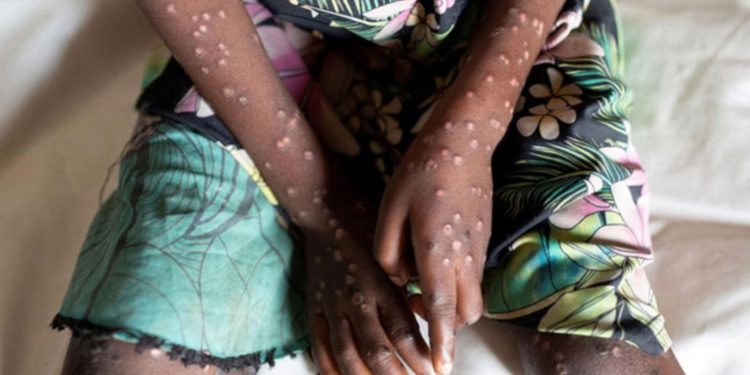By Winfred Watenya
The United Nations World Health Organization (WHO) has raised the response to the Mpox outbreak in over a dozen African countries to the highest level, mobilizing efforts across the agency.
This was announced during Thursday’s emergency meeting of the Committee of Experts called by WHO chief Tedros Adhanom Ghebreyesus to determine whether the outbreak in Africa constitutes a Public Health Emergency of International Concern.
According to UN news, the continent is witnessing an “unprecedented” spike in Mpox cases since January, with 15 countries reporting outbreaks.
As of yesterday, over 2,000 cases and 13 deaths had been confirmed this year, compared with 1,100 cases and seven deaths in the whole of 2023.
In Uganda, the Ministry of Health has confirmed the outbreak with two patients of Congolese origin admitted at Mpondwe Lubhiriha Hospital in Kasese District.
Mpox is a viral illness caused by the monkeypox virus, a species of the genus Orthopoxvirus.
Common symptoms include a skin rash or mucosal lesions that can last for two to four weeks accompanied by fever, headache, muscle aches, back pain, low energy, and swollen lymph nodes.
It can be transmitted to humans through physical contact with someone who is infectious, with contaminated materials, or with infected animals
Treatment is supportive and aimed at alleviating the symptoms. Various therapeutics that may be effective against Mpox are being developed and tested.
According to WHO, the Democratic Republic of the Congo accounts for the highest number (90 percent) of the reported cases, including a new variant that emerged last September. Cases from that variant have also been reported in neighboring Rwanda and Uganda, as well as Kenya, while analysis of cases is ongoing in Burundi.
Matshidiso Moeti, the agency’s Regional Director for Africa, highlighted that the “priority is to rapidly interrupt the transmission of the virus”.
“We are collaborating with partners in support of countries to reinforce outbreak control measures and ensure that communities are central to ongoing efforts to effectively end these outbreaks,” Dr. Moeti said.









